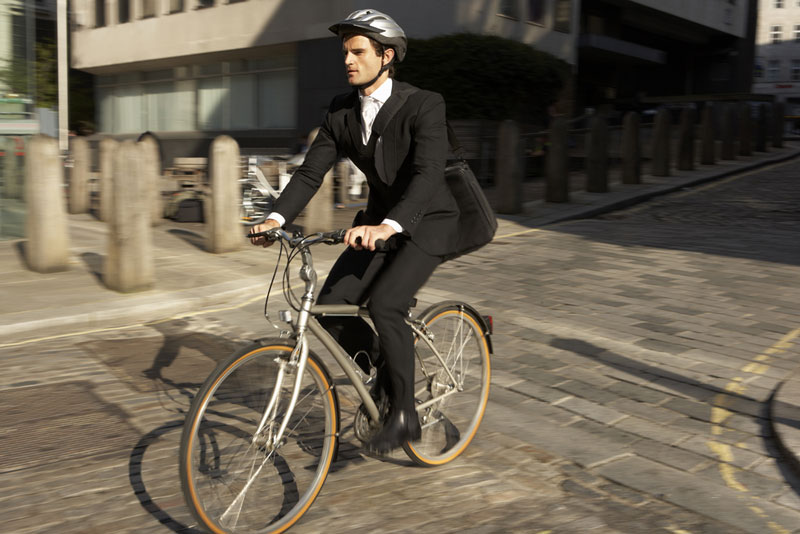Walking or Biking to Work May Make You Happier

Walking to work is not only good for your body; it may also benefit your psychological health, a new study from England suggests.
In the study, the researchers analyzed information from nearly 18,000 commuters in England who answered questions about their well-being, such as whether they experienced feelings of worthlessness, unhappiness or sleepless nights in the last few weeks. Based on those answers, the researchers gave each participant a well-being score. Participants completed the survey for at least three consecutive years between 1991 and 2009.
People who walked or cycled to work had higher well-being scores than those who drove. In particular, people who drove to work had a 13 percent higher likelihood of feeling that they were constantly under strain and unable to concentrate, compared with those who walked or cycled.
The findings held even after the researchers took into account factors that could affect well-being, such as household income, overall health and whether the participants had children. [7 Things That Will Make You Happy]
What's more, people who switched from driving to walking or cycling to work tended to experience an improvement in well-being, the study found.
"These results appear to suggest that avoiding car driving may be beneficial to well-being," the researchers wrote in the Sept. 15 issue of the journal Preventive Medicine.
The findings are in line with previous research linking exercise with improvements in mood, the researchers said.
Sign up for the Live Science daily newsletter now
Get the world’s most fascinating discoveries delivered straight to your inbox.
The potential benefits of walking and cycling to work should be considered when evaluating the cost-benefit of city projects seeking to promote "active" commutes (such as city biking programs), the researchers said.
Surprisingly, the study also found that people who used public transportation also had higher well-being scores than those who drove to work.
"You might think that things like disruption to services or crowds of commuters [on public transportation] might have been a cause of considerable stress," Adam Martin, of the University of East Anglia's Norwich Medical School and one of the researchers on the study, said in a statement. "But as buses or trains also give people time to relax, read [and/or] socialize — and there is usually an associated walk to the bus stop or railway station — it appears to cheer people up."
The new results contradict another recent U.K. study that found people who walked to work had lower life satisfaction, and those who cycled were more anxious, than those who drove. However, the earlier study looked at commuters at a single point in time, a less-rigorous study design than that of the new study, which followed people forward in time. In addition, the new study was able to look at mood changes that occurred among people who switched from driving to walking or cycling.
It's not clear whether the findings would apply to other countries where active commutes and public transportation are less mainstream, and where it may be more difficult to walk or bike to work, the researchers said.
Follow Rachael Rettner @RachaelRettner. Follow Live Science @livescience, Facebook & Google+. Original article on Live Science.

Rachael is a Live Science contributor, and was a former channel editor and senior writer for Live Science between 2010 and 2022. She has a master's degree in journalism from New York University's Science, Health and Environmental Reporting Program. She also holds a B.S. in molecular biology and an M.S. in biology from the University of California, San Diego. Her work has appeared in Scienceline, The Washington Post and Scientific American.









